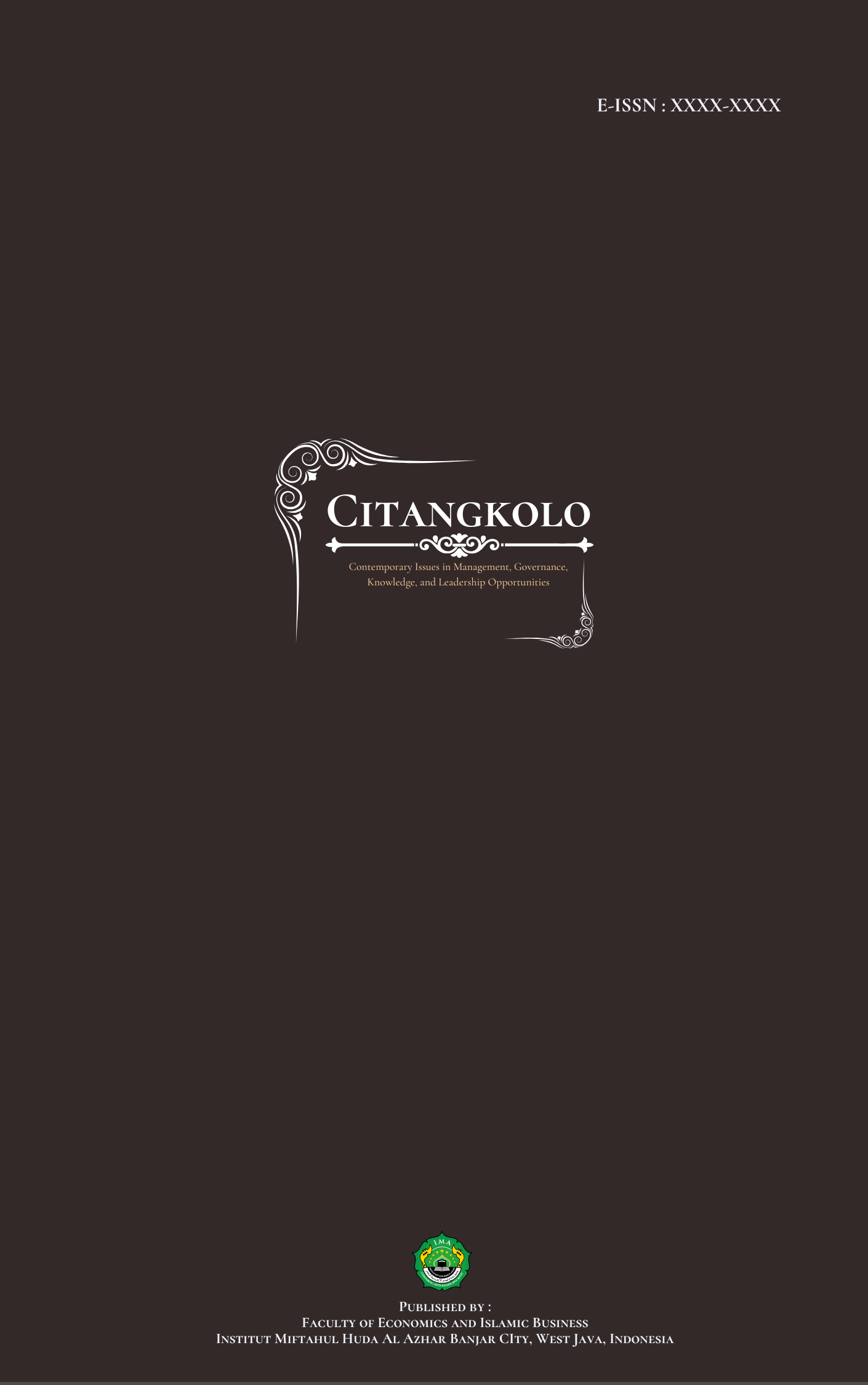Islamic-Based Planning and Organizing in Faith-Based Higher Education: A Field Study at STIT NU Al-Farabi Pangandaran
Keywords:
Islamic Management, Planning, Organizing, Faith-Based Education, Sustainable Development IntroductionAbstract
Background: This study explores the implementation of Islamic-based planning (takhtith) and organizing in a faith-based higher education context, focusing on STIT NU Al-Farabi Pangandaran, Indonesia. It aims to understand how Islamic values influence management practices in educational institutions.
Methods: Using a qualitative field-based approach, data were collected through interviews, document analysis, and observation. The study examines how values such as tawhid (monotheism), amanah (trust), shura (consultation), and adl (justice) are embedded in institutional governance.
Results: The findings indicate that Islamic values are reflected in leadership decisions, academic planning, and organizational role distribution. These align with modern management models, particularly the PDCA (Plan–Do–Check–Act) cycle. However, challenges such as limited documentation, strategic evaluation gaps, and balancing traditional ethics with contemporary demands were identified.
Discussion: The integration of Islamic principles promotes ethical, participatory, and goal-oriented management. It also strengthens institutional identity and supports sustainable governance practices that align with both religious values and administrative standards.
Conclusion: Islamic-based planning and organizing support institutional effectiveness and contribute to SDG 4 (Quality Education) and SDG 16 (Peace, Justice, and Strong Institutions). The case of STIT NU Al-Farabi offers a model for similar institutions in Muslim-majority contexts.
Novelty: This study provides empirical insights into how Islamic ethics can be harmonized with modern educational leadership, offering a transferable governance model for faith-based institutions.




